Filter by
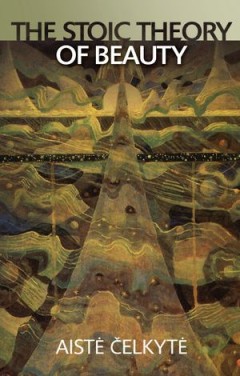
The Stoic Theory of Beauty
Highlights the important contribution Stoic philosophy made to aesthetics Shows that this is a largely unexplored area of interest to scholars of both ancient philosophy and aesthetics Analyses material to show that there is a coherent and substantial attempt at systematic enquiry into aesthetic phenomena Discusses how Stoic ideas could enhance our understanding of ancient aesthetics and eve…
- Edition
- -
- ISBN/ISSN
- 978 1 4744 6163 4
- Collation
- -
- Series Title
- -
- Call Number
- 100 CEL s
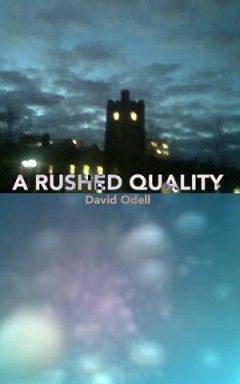
A Rushed Quality
These fragments collected here (in 2 books, “A Rushed Quality” and “Bodying Forth”) belong neither to philosophy nor to poetry — and yet they are for the most part focused on a substantial area of overlap between these two venerable disciplines, vis-à-vis the question, “What is it like to be X?” Philosophers like to fill in the X with something exotic like a bat or a dolphin, or …
- Edition
- -
- ISBN/ISSN
- 978-0692426562
- Collation
- -
- Series Title
- -
- Call Number
- 100 ODE r
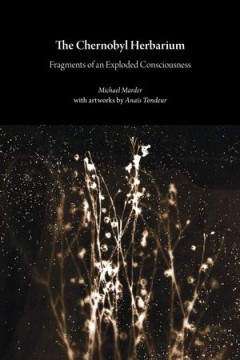
The Chernobyl Herbarium
We entrust readers with thirty fragments of reflections, meditations, recollections, and images — one for each year that has passed since the explosion that rocked and destroyed a part of the Chernobyl nuclear power station in April 1986. The aesthetic visions, thoughts, and experiences that have made their way into this book hover in a grey region between the singular and self-enclosed, on t…
- Edition
- -
- ISBN/ISSN
- 9781785420269
- Collation
- -
- Series Title
- -
- Call Number
- -
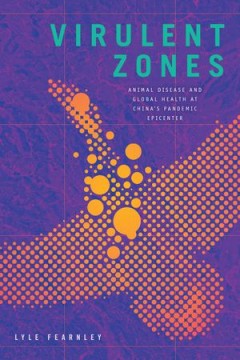
Virulent Zones : Animal Disease and Global Health at China's Pandemic Epicenter
Scientists have identified southern China as a likely epicenter for viral pandemics, a place where new viruses emerge out of intensively farmed landscapes and human--animal interactions. In Virulent Zones, Lyle Fearnley documents the global plans to stop the next influenza pandemic at its source, accompanying virologists and veterinarians as they track lethal viruses to China's largest freshwat…
- Edition
- -
- ISBN/ISSN
- 9781478009993
- Collation
- -
- Series Title
- -
- Call Number
- -
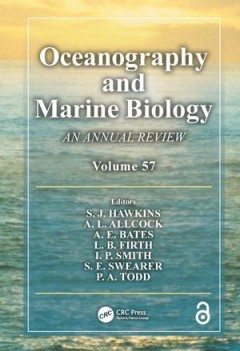
Virtual Works – Actual Things
Beyond musical works: new perspectives on music ontology and performance What are musical works? How are they constructed in our minds? Which material things allow us to speak about them in the first place? Does a specific way of conceiving musical works limit their performative potentials? Which alternative, more productive images of musical work can be devised? Virtual Works – Actual Things…
- Edition
- -
- ISBN/ISSN
- 9789461662521
- Collation
- -
- Series Title
- -
- Call Number
- 780

Transpositions: Aesthetico-Epistemic Operators in Artistic Research
Research leads to new insights rupturing the existent fabric of knowledge. Situated in the still evolving field of artistic research, this book investigates a fundamental quality of this process. Building on the lessons of deconstruction, artistic research invents new modes of epistemic relationships that include aesthetic dimensions. Under the heading transposition, seventeen artists, music…
- Edition
- -
- ISBN/ISSN
- 9789461662538
- Collation
- -
- Series Title
- -
- Call Number
- 780
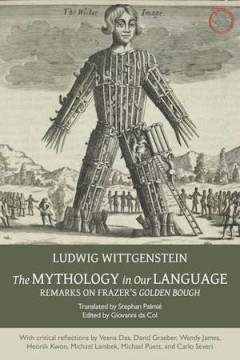
Powers of Divergence: An Experimental Approach to Music Performance
What does it mean to produce resemblance in the performance of written music? Starting from how this question is commonly answered by the practice of interpretation in Western notated art music, this book proposes a move beyond commonly accepted codes, conventions and territories of music performance. Appropriating reflections from post-structural philosophy, visual arts and semiotics, and cruc…
- Edition
- -
- ISBN/ISSN
- 9789461662514
- Collation
- -
- Series Title
- -
- Call Number
- 780
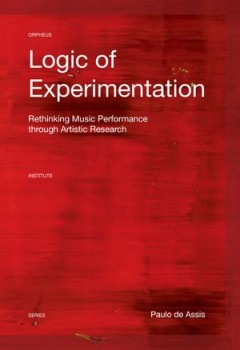
Logic of Experimentation
Beyond interpretation: a proposal for experimental performance practices Logic of Experimentation offers several innovative and ground-breaking perspectives on music performance, music ontology, research methodologies and ethics of performance. It proposes new modes of thinking and exposing past musical works to contemporary audiences, arguing for a new kind of performer, emancipated from autho…
- Edition
- -
- ISBN/ISSN
- 9789462701380
- Collation
- -
- Series Title
- -
- Call Number
- 780
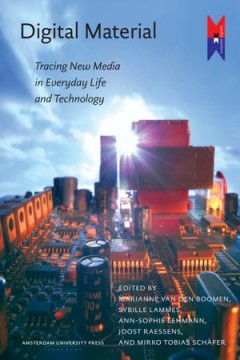
Digital Material
Three decades of societal and cultural alignment of new media have yielded a host of innovations, trials, and problems, accompanied by versatile popular and academic discourse. New Media Studies crystallized internationally into an established academic discipline, and this begs the question: where do we stand now? Which new questions are emerging now that new media are being taken for granted, …
- Edition
- -
- ISBN/ISSN
- 9789089640680
- Collation
- -
- Series Title
- -
- Call Number
- 791 RAE d
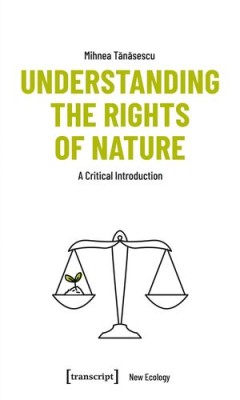
Understanding the Rights of Nature
Rivers, landscapes, whole territories: these are the latest entities environmental activists have fought hard to include in the relentless expansion of rights in our world. But what does it mean for a landscape to have rights? Why would anyone want to create such rights, and to what end? Is it a good idea, and does it come with risks? This book presents the logic behind giving nature rights and…
- Edition
- -
- ISBN/ISSN
- 9783839454312
- Collation
- -
- Series Title
- -
- Call Number
- -
 Computer Science, Information & General Works
Computer Science, Information & General Works  Philosophy & Psychology
Philosophy & Psychology  Religion
Religion  Social Sciences
Social Sciences  Language
Language  Pure Science
Pure Science  Applied Sciences
Applied Sciences  Art & Recreation
Art & Recreation  Literature
Literature  History & Geography
History & Geography